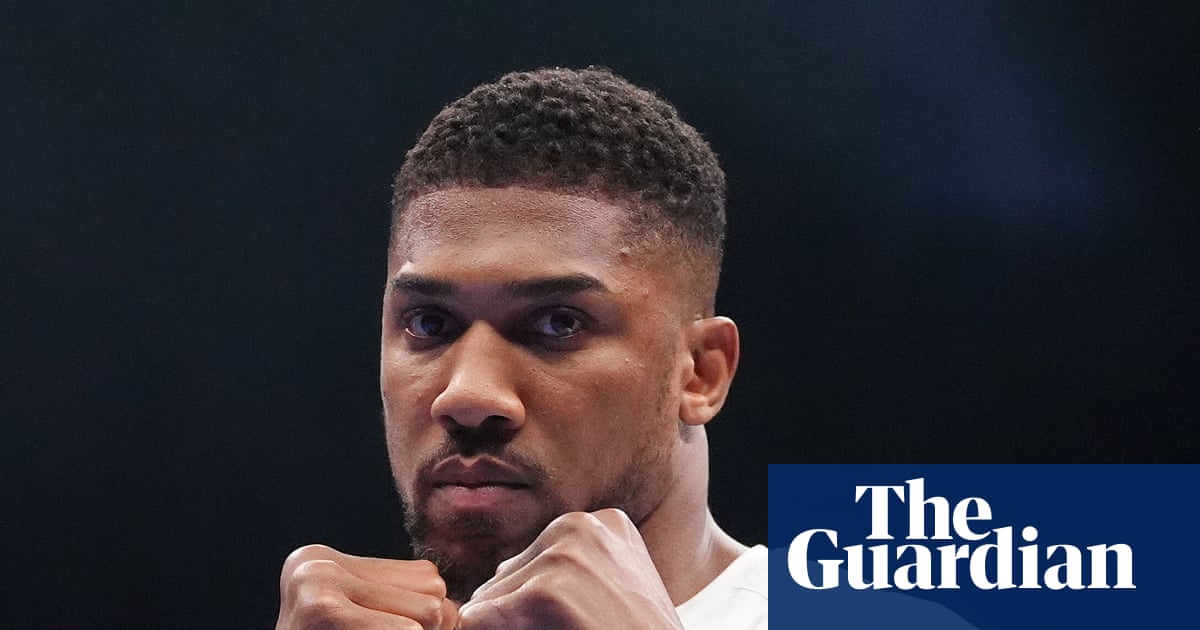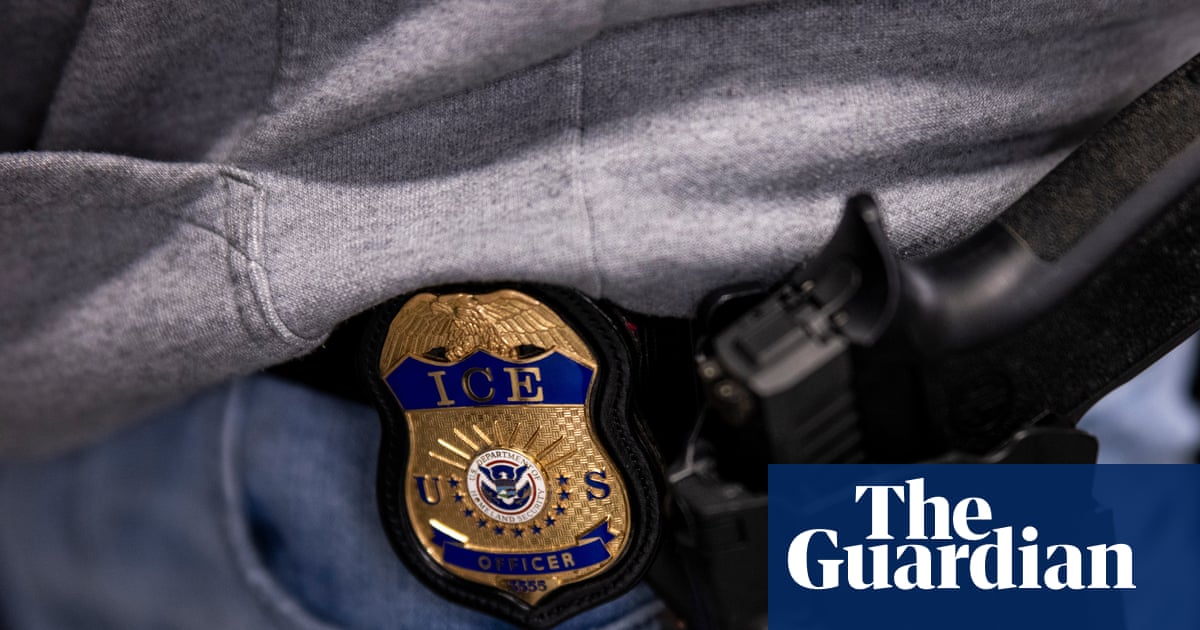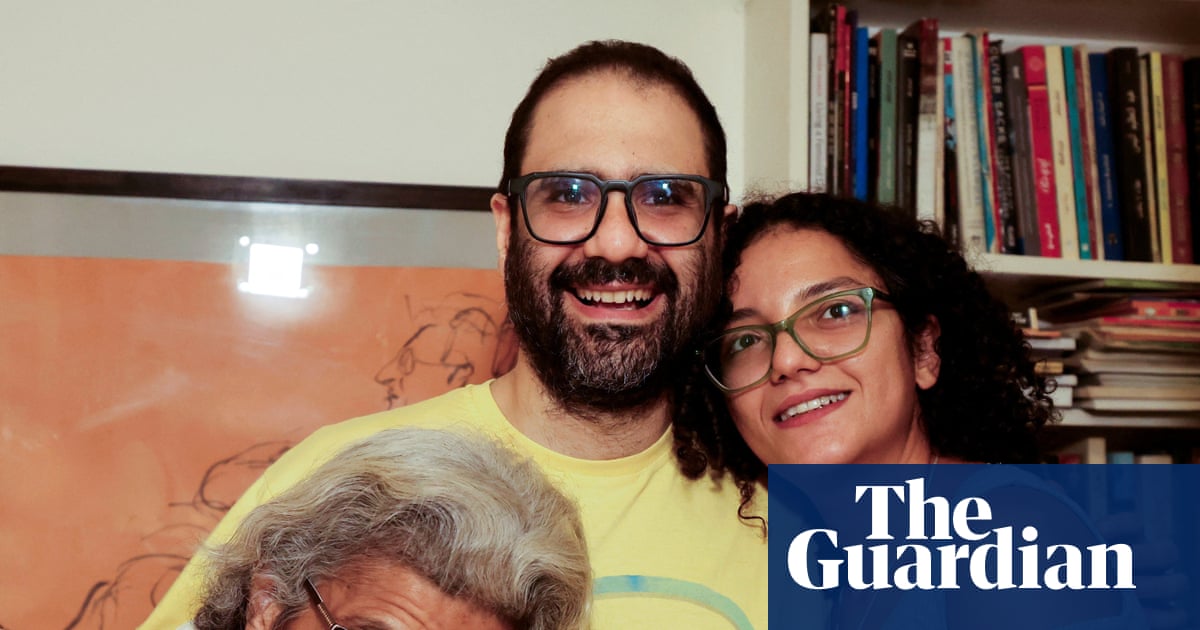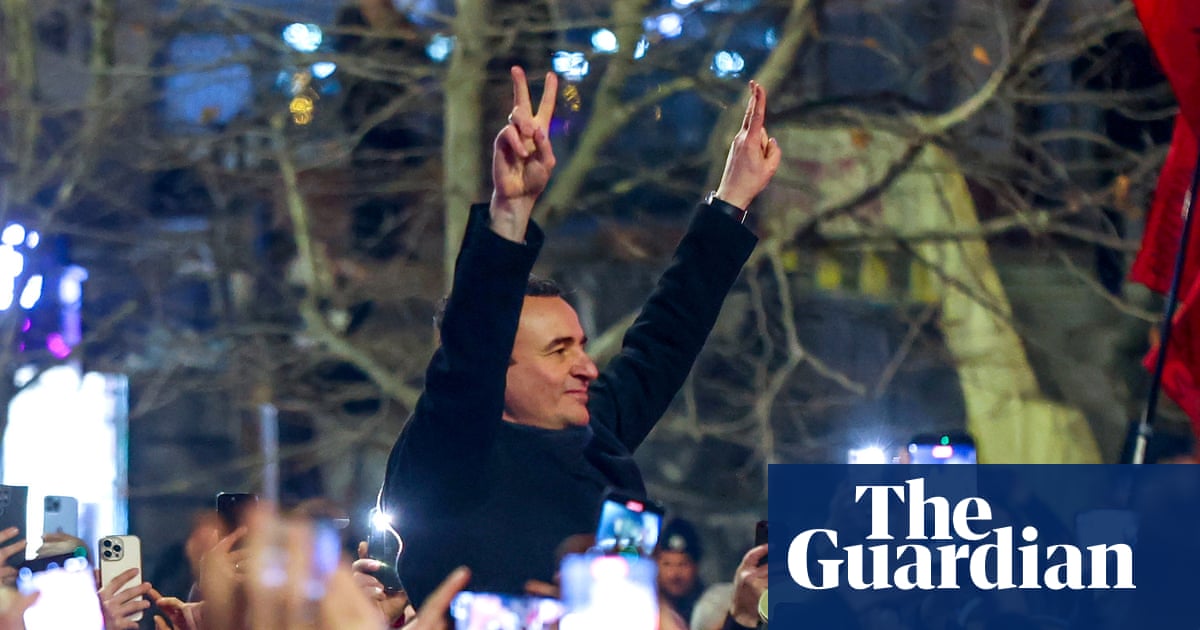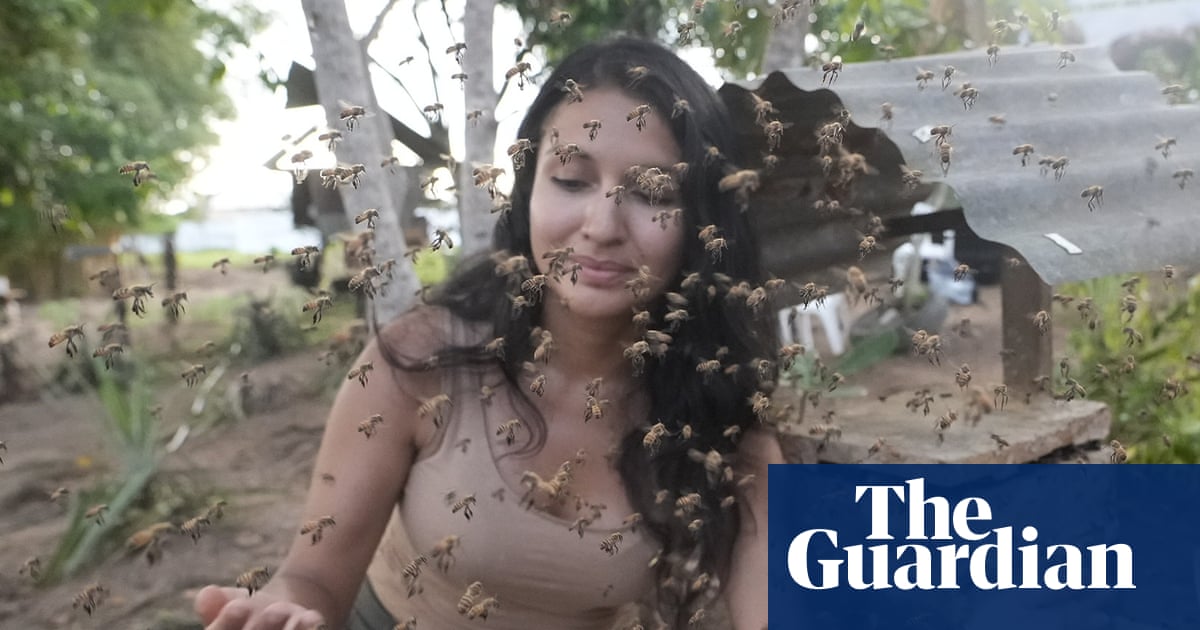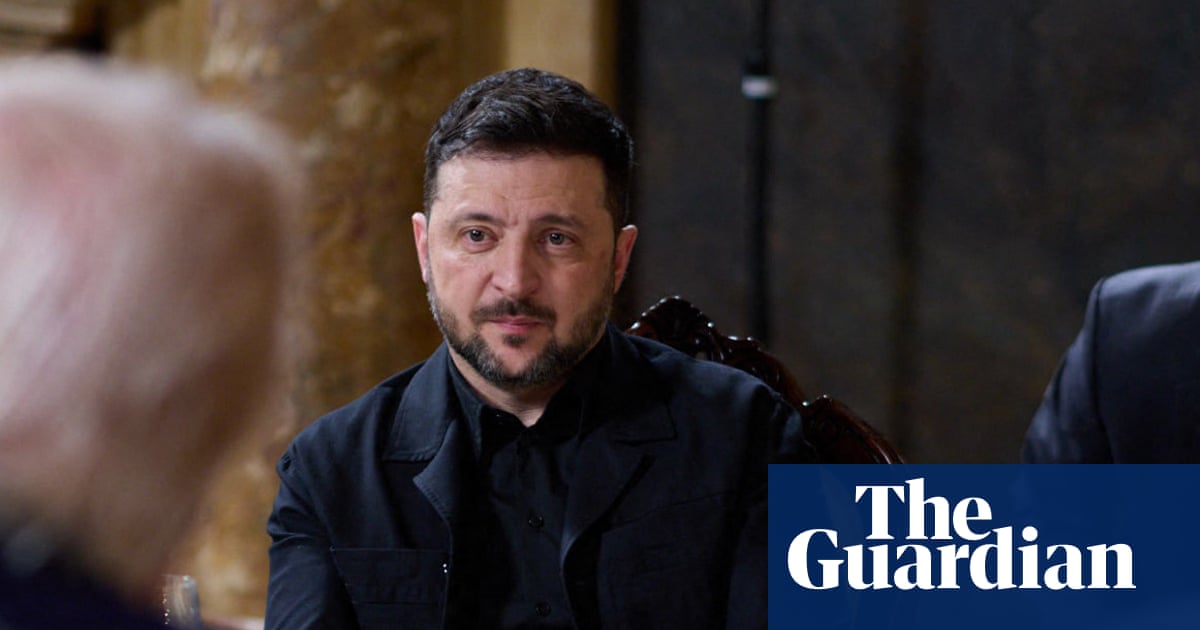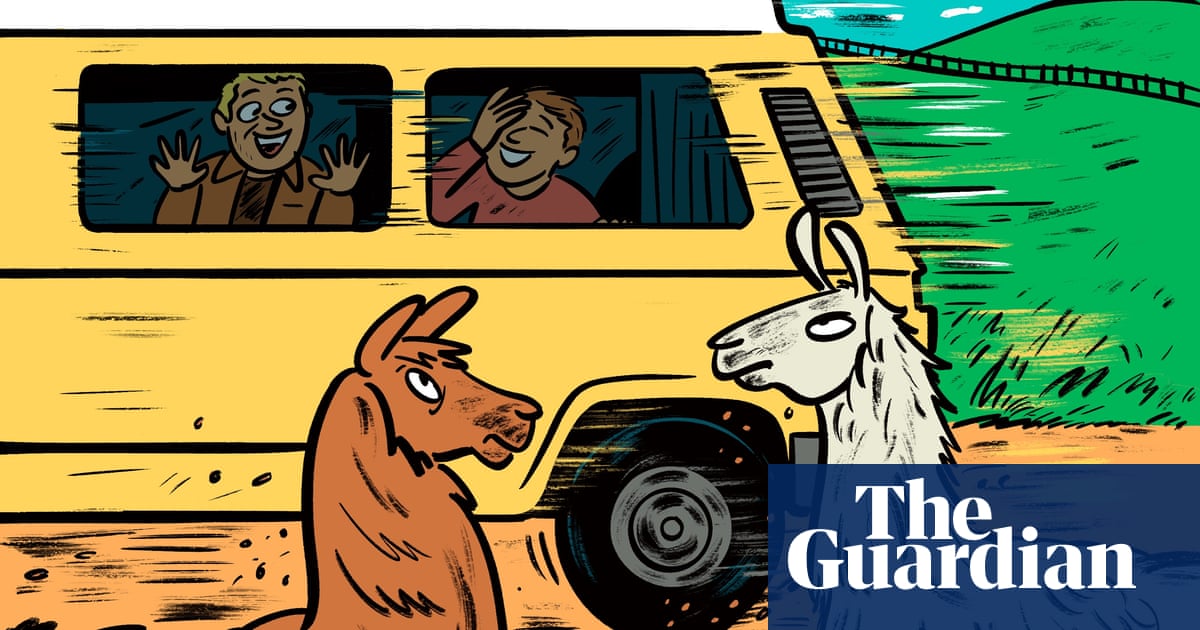In a dark, grimy dugout in the middle of the freezing New Zealand bush, the three Phillips children lived with their father. Childhood is measured in increments; birthdays, lost teeth, certificates, a felt tip on a height chart. In the version of reality Tom Phillips created and controlled for his children, it’s hard to know how time was marked. But from 9 December 2021, when their father took them from their mother and the rest of their family, it would be 1,368 sleeps before the children were rescued.
This week, after almost four years on the run, Phillips was found on his way back from a robbery with one of his children. He was shot dead after being stopped by road spikes and opening fire on police, shooting an officer in the head and shoulder. This sparked an urgent search for the two children remaining in the bush. They were found with the help of the other child just a few hours before nightfall the same day, bringing an end to a dark chapter.
The children are now in the custody of Oranga Tamariki, the country’s child protection agency, and when and how their mother will be reunited with them is one of many uncertainties left in a case that has gripped people around the world, not least those in New Zealand, who are left with unanswered questions about the horror that unfolded in their own back yard.
Nobody is sure how this could have happened. Questions continue to swirl amid heightened, and varied, feelings over the role of the police and Phillips himself. Many living in the tiny coastal town at the centre of the story, Marokopa, feel a strong sense of pain for the family and want to bring a close to the years-long ordeal.
Marokopa, home to the Phillips family farm, is bordered by tens of thousands of hectares of dense native bush. It’s part of the Waitomo district, a rugged, rural area which stretches inland from the windswept west coast of New Zealand’s North Island. When the Guardian visited the area a day after Phillips’ death, it was only accessible over a mountain range via a gravel track, with misty valleys plunging down one side and steep cliffs rising on the other.
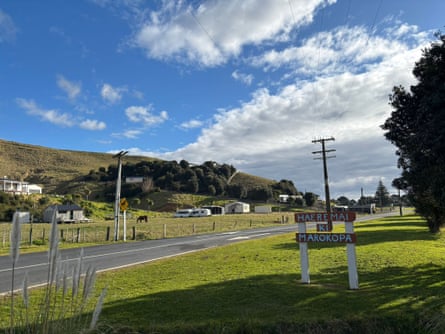
This is what Phillips disappeared into in December 2021; a part of the country he was familiar with, helped by people invested in keeping him hidden, in terrain that proved difficult for searchers. Authorities say he likely moved the children around rudimentary shelters in muddy, inhospitable backcountry. Those familiar with the New Zealand bush know that it is possible to get lost metres from a track; trampers die in this tangled wilderness every year. Despite multiple searches and an $80,000 reward, Phillips was able to use camouflage and the cover of this canopy to evade discovery for almost four years.
Many wonder how Phillips was able to take the children or why it took years to find him, in a district considered remote yet heavily touristed in parts, and just an hour away from one of the country’s biggest cities. Police are still hunting for those who helped him survive.
There is no suggestion his family were helping him. But as Radio New Zealand has reported, no large-scale searches were launched until May 2023 when Phillips allegedly robbed a bank in Te Kuiti with one of his children, despite the fact he did not have custody of them.
“I suspect they don’t take a parental kidnapping as urgently as they take a stranger abduction – there is this underlying stereotypical reasoning that they’re not in as much danger because they are with their father, and I think they’re just in a different type of danger,” says University of Auckland law professor Carrie Leonetti,questioning why more resources weren’t put into the case earlier.
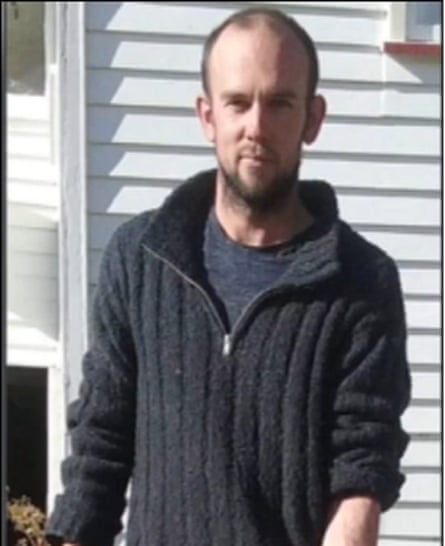
Police did not respond to the Guardian’s questions. But Det Sgt Andy Saunders told Radio New Zealand the burglary in 2023 “ramped up the risk,” and changed the way police thought about Phillips.
“A lot of the public obviously ask why don’t you just send in hundreds of people walking through the bush. That would have ended quite frankly, in people being killed,” he said.
Yet police constantly appeared a few steps behind, despite a flurry of sightings of Phillips in neighbouring towns. In October 2024 came the first sighting of all three children alive in rugged farmland near Marokopa, but it wasn’t until almost a year later Phillips was seen on CCTV attempting to break into a mini-mart in the small town of Piopio. Something had changed; police suspected that Phillips might have lost his supporters.
“He must have been getting desperate,” experienced bushman and hunter Ngahiraka Te Riini, who has been in and out of the 5km patch of “quite accessible” bush where Phillips’ campsite was found half a dozen times since the start of the year. The bush where the children were found was nowhere near as secluded as Marokopa, where the search had been mostly based.
At 2.30am on 8 September, someone called police after seeing him break into a farm supplies store in the small town of Piopio, which ended shortly afterwards with Phillips’ death.
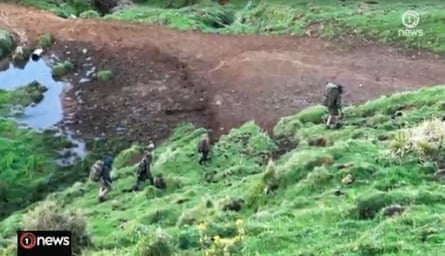
‘Complex emotions’
The children’s mother, who was involved in their lives, searched for them herself, made many appeals for their return, describing every day they were away as a “waking nightmare.”
“[I’m] grieving … the loss of three childhoods, the loss of innocence, the loss of my babies, they deserve better,” she told the New Zealand Herald.
Of their return, she told NZ programme Mata Reports she felt “a wave of complex emotions.”
“They have been dearly missed every day for nearly four years, and we are looking forward to welcoming them home with love and care.”
Oranga Tamariki Waikato regional commissioner Warwick Morehu would not answer specific questions, telling the Guardian the agency was working at the direction of the family court. “We have an experienced and dedicated team working with the children, who are all acutely aware of the responsibility.”
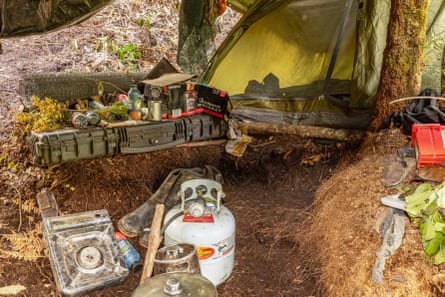
After the children were found, a lawyer for the Phillips family was granted an injunction in the high court which remains in place, preventing the reporting of certain details of the case. As so many threads remain untied, experts say reintegrating the children into normal life will be tricky.
“They’ve missed out on socialising skills, they will have conditioned all their behaviours around their father and his psychology and being pleasing and cooperative,” says Beth St Claire, a psychotherapist who specialises in dealing with cult survivors. “To them, the world outside will seem scary.”
The children’s mother and her adult children have said Phillips was using the children as pawns. “I can’t believe that this has been allowed to happen. It’s like the system really doesn’t care,” she told the New Zealand Herald. “Every step of the way nobody listened to me, I was just ignored, time and time again, minimised, gaslit and yet, look where we are.” She told Radio New Zealand she has faced online trolling for speaking out.
‘It should not have come to this’
For locals in Marokopa, the shooting is a sad and preventable ending to what they say has been four years of police and media intrusion on their lives – and those of the Phillips’ family, who have deep roots in the farming community.
“We’ve had a gutsful of the police running round here, of reporters. It’s harassment, that’s how we feel,” says Warren Keegan, who runs the local campground and fire service with his wife, Gayle. “I feel sorry for the [Phillips] family and for the kids, we all do.”
The Keegans are one of only 24 permanent residents in the seaside community, which has only had mobile phone service for a couple of years. The Phillips help them to run their yearly pig hunting competition, and have “gone through hell”, Keegan said, saying they’ve been just as worried as anyone else.
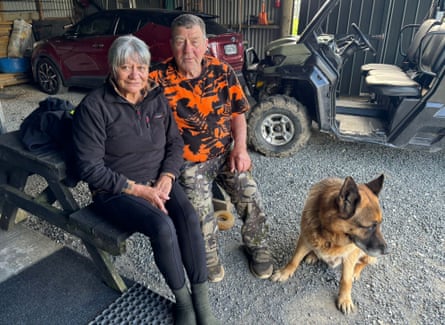
Along with many spoken to by the Guardian, he had little time for the police, questioning why they needed to be there.
“Most people reckon if you’d just left him alone he would have come out anyway, he got pushed into a corner. It should not have come to this.”
Some locals refused to talk, or spoke of there being “two sides” to the story, an idea which also has traction online.
When police released the photographs of the campsite at which Phillips had spent the past several months – showing a Jack Daniel’s box, gas burner and cans of lemonade on a tyre – some expressed surprise.
Te Riini, who grew up as a child building huts in the bush and wishing he could live out in the forest, also envisioned it differently. “Given how long they’d been out there for, I expected it to be quite an elaborate setup.”
Despite everything, he still had a kind of respect for Phillips, which he said was shared by many he spoke to. “If this was going to happen, it would happen in New Zealand. We are the only people capable of doing this, with the skills and mentality to pull something like that off. Our rural communities are just raised differently.”
But others don’t have time for fantasies. Kahurangi Carter, of the local Ngati Maniapoto iwi (tribe), who grew up near Marokopa and is now a Green party MP, said she knows that bush, too.
“If everyone in their lives had put the children’s needs first, we wouldn’t be in this situation. Those [children] need to be wrapped up in the relationships they’ve lost in those last four years so they can be on that healing journey with their whānau (family). Those children were endangered and neglected, and we cannot ever have an excuse for that.”
In some stories, there are good guys. In others, there are monsters. A Netflix documentary is now in production; many have said this would make a good movie.
As the sun began to set across the waves in Marokopa, Keegan walked to his ute, simply shaking his head. “These are real people’s lives.”

 3 months ago
56
3 months ago
56

